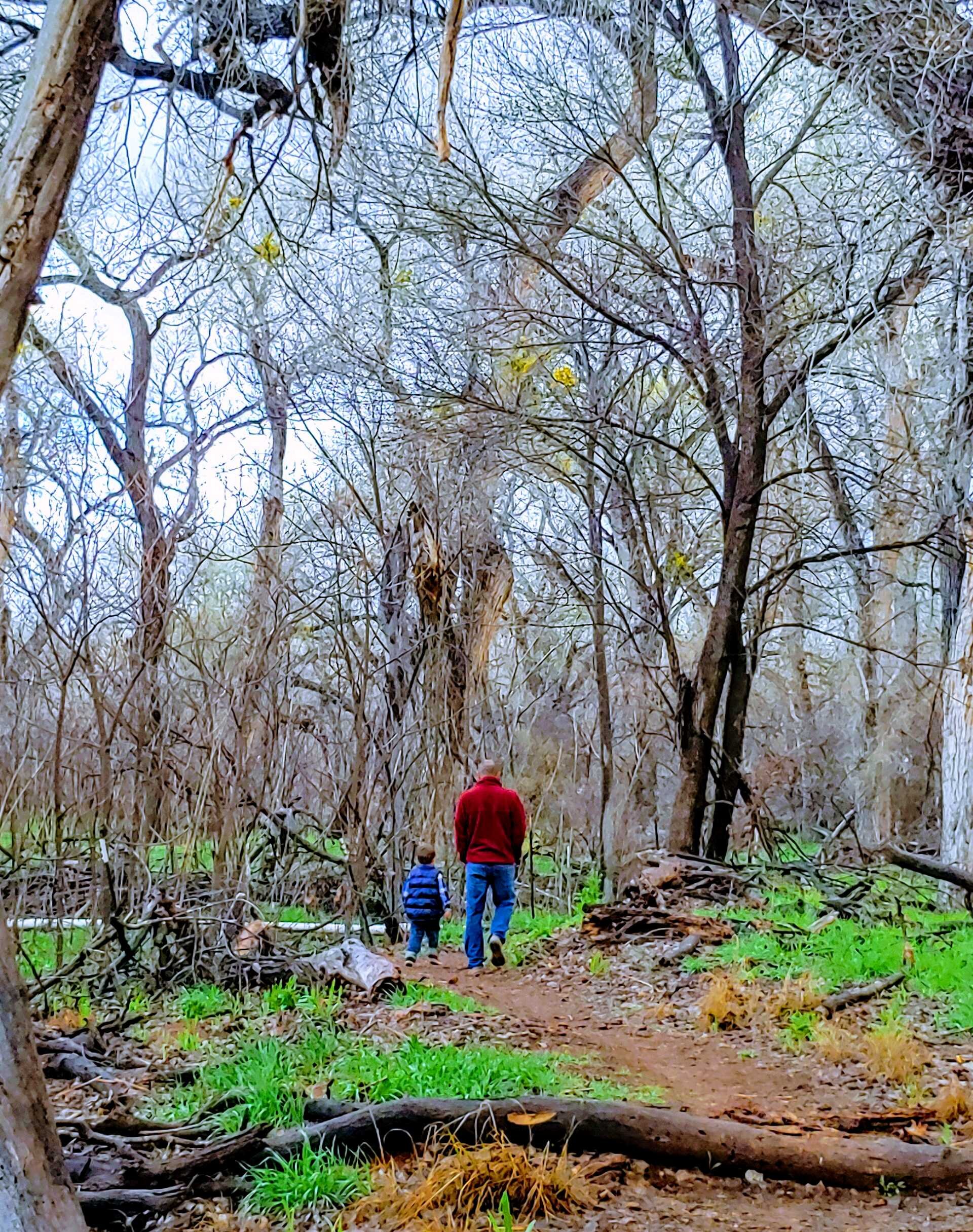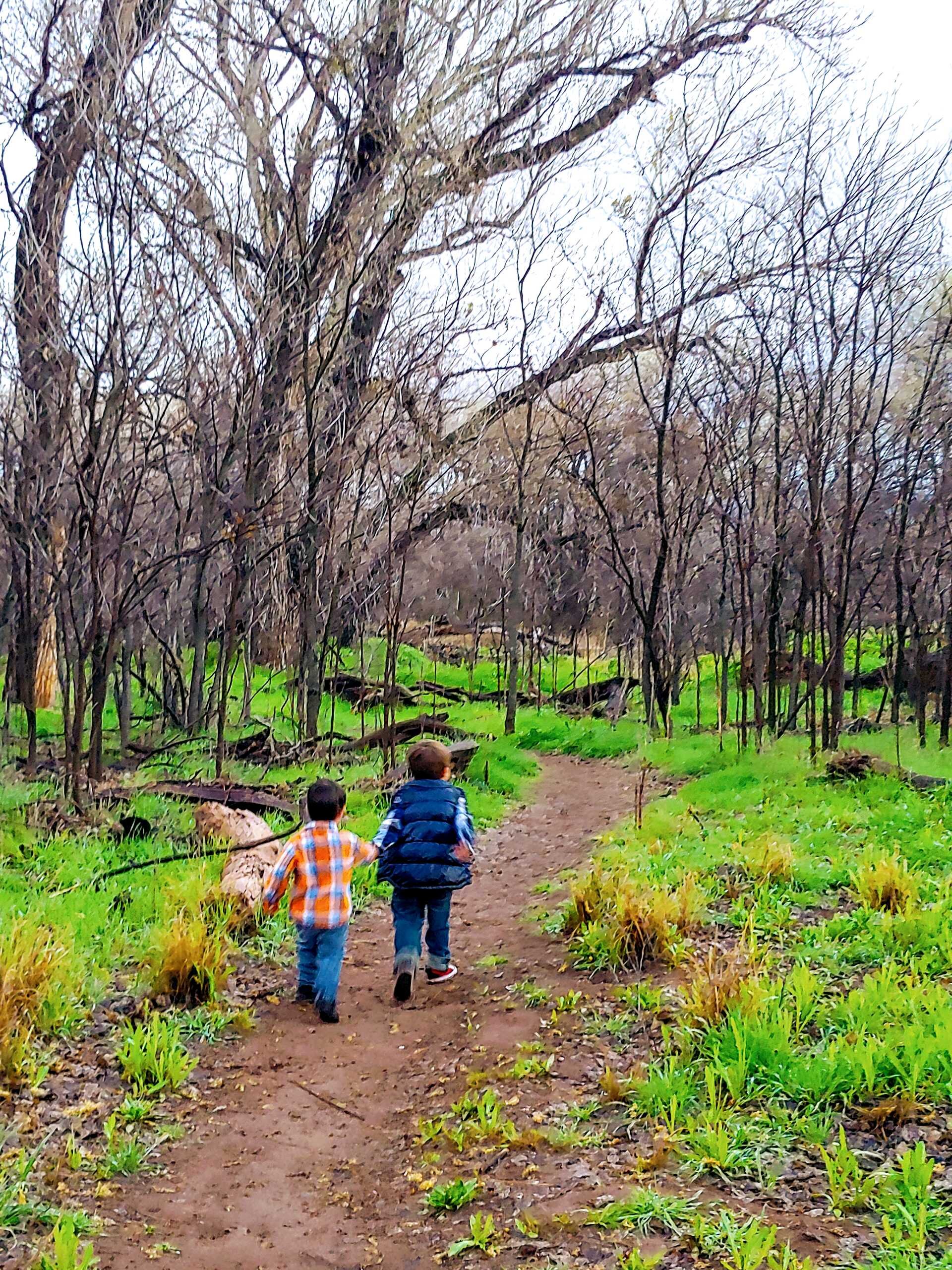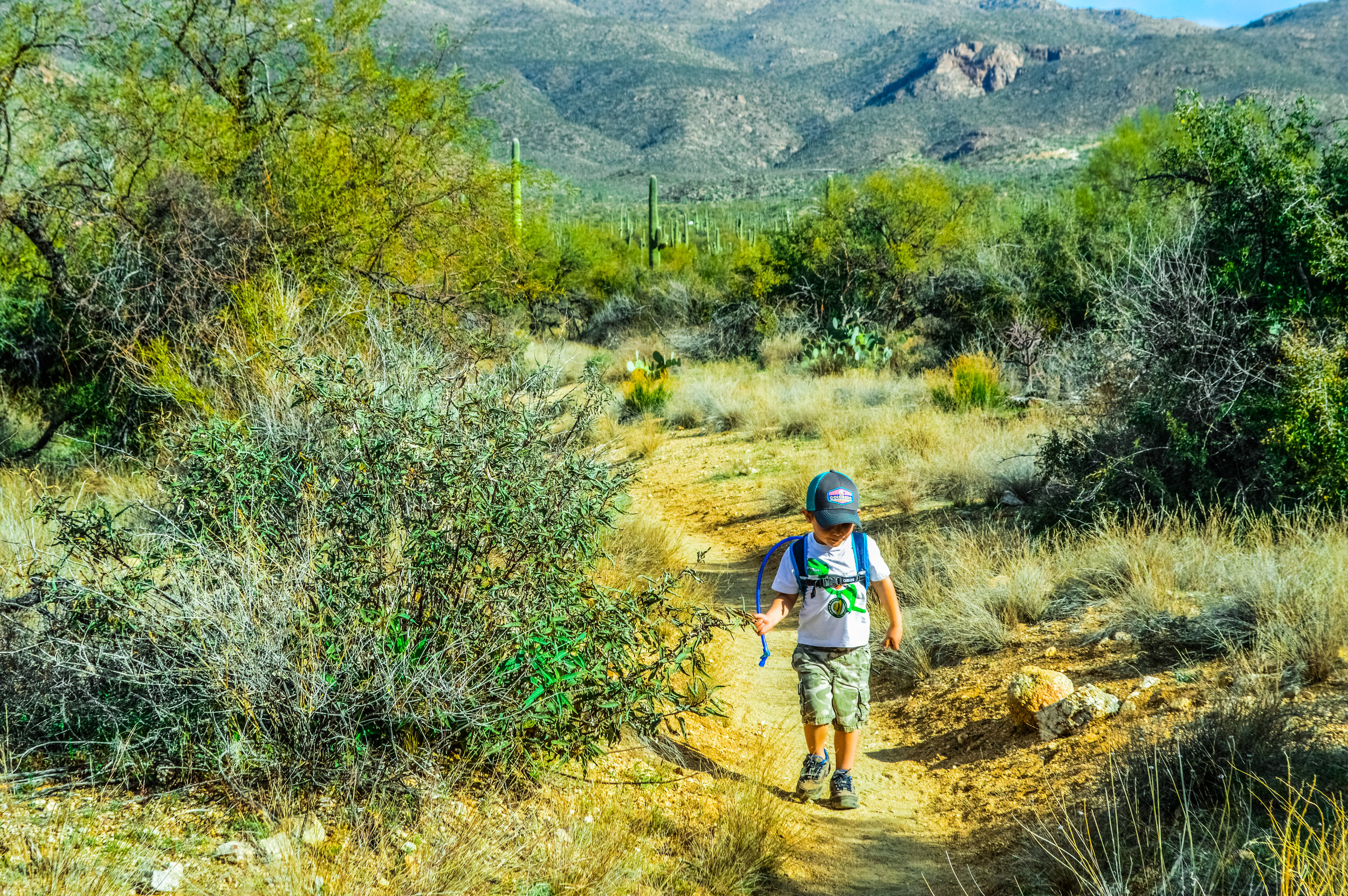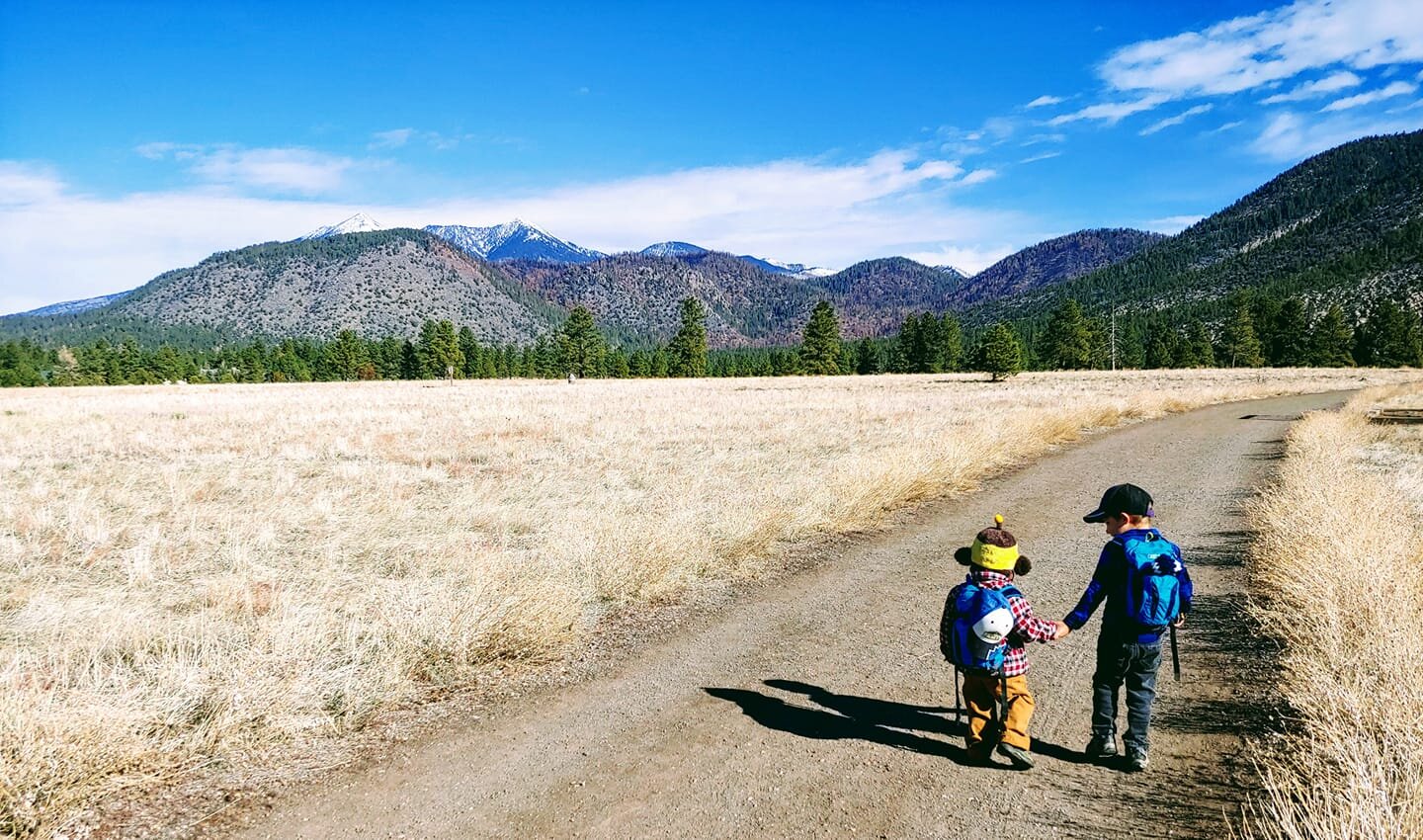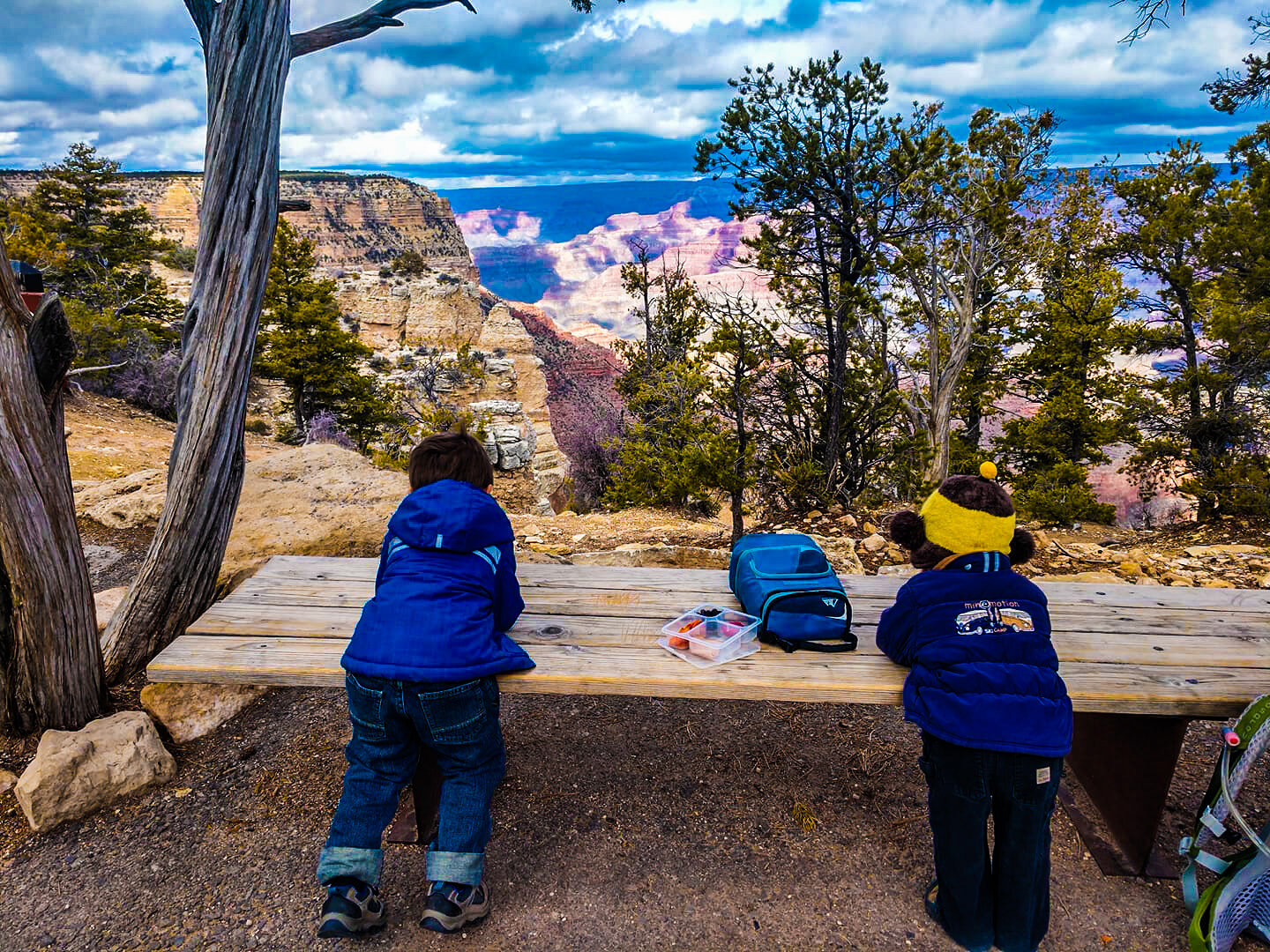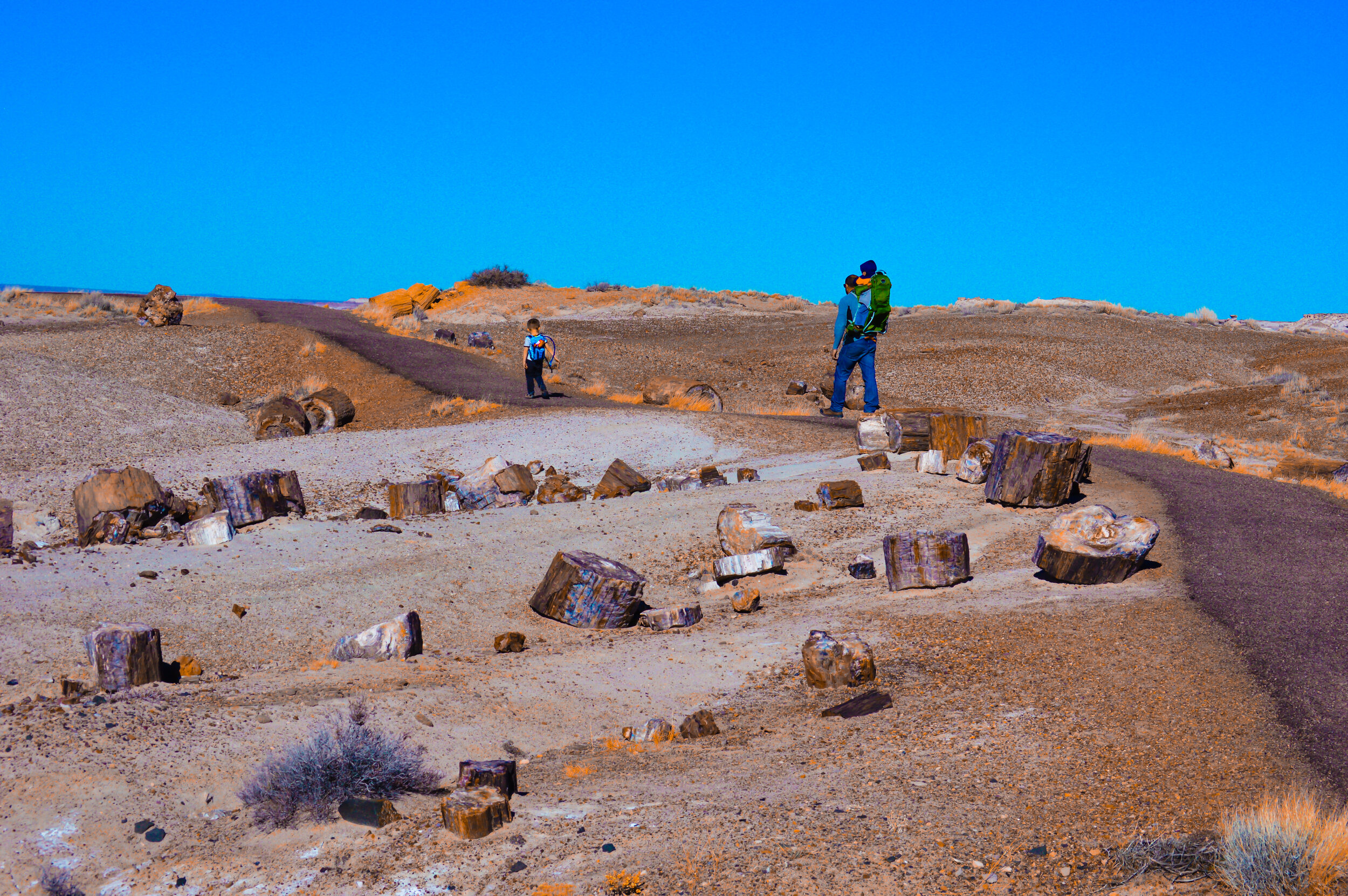Take a Hike

Many people have asked how we are dealing with self-quarantine in the tiny home. While of course we are taking all the CDC suggested precautions like increased hand washing and social distancing, we find that getting out in nature is critical to keeping our sanity. Not only does regular hiking keep us away from crowds and help us stay physically fit, it turns out that exercising while immersed in nature (like hiking) can offer a whole range of mental health benefits – something we can likely all use right now. Social distancing can be tough but making a point to get out in nature (alone!) can be a complete game changer if you are struggling to keep it together during these somewhat scary times. If you are a regular hiker, you have probably felt these positive effects, but here is some science to validate that feeling you already know and love!
Hiking can stop negative and obsessive thoughts
While urbanization has its many benefits, it is also associated with increased mental illness and depression. A study by the Proceedings of the National Academy of Sciences (PNAS) found that adding a 90-min walk in nature to your daily routine can reduce rumination and obsessive thoughts that lead to depression, and showed reduced activity in areas of the brain linked to mental illness. The study goes on to note that time spent in nature provides a direct pathway to improved mental well-being and that accessible natural areas within urban contexts are critical to the communities mental health.
For our family, one of the main driving factors of going tiny was the ability to easily increase the amount of time we spent in nature. Spending time together hiking has had clear positive impacts on our toddlers’ behavior along with the amount of patience each of us (the parents) have. As a parent, I can think of no better way to avoid negative and obsessive thoughts, especially when it comes to dealing with toddlers and melt-downs.
Hiking while disconnected from technology boosts creative problem solving
It can be hard to disconnect from technology in today’s modern age. However, a study conducted by the University of London noted that four days immersed in nature with a total disconnect from technology, improved creativity and problem-solving by a full 50%. By increasing our exposure to natural stimuli, and decreasing our exposure to attention demanding technology, you are actually able to increase your cognitive reasoning skills. This is particularly pertinent right now when folks are likely getting even more screen-time than they normally would given the government mandated indoor time. Just because you need to quarantine doesn’t mean you need to quarantine in front of a screen. Take some time to disconnect and spend some time boosting your problem-solving skills in nature – who knows, you might come up with the next great development in fighting COVID-19!
Therapeutic time spent along the Colorado River - we are good parents when we are good to ourselves.
Hiking can be an additional therapy tool
A study at the Paracelsus Medical University of Salzburg, Austria found that regular hiking, specifically mountain hiking, as an add-on therapy to usual care, resulted in the improvement of hopelessness, depression and suicidal thoughts. Talk about a cost-effective therapy plan, with none of the serious side effects often involved with more traditional medicinal treatments! The Outdoor Behavioral Healthcare Research Cooperative has conducted some 200 studies on wilderness therapy and notes that using nature as a backdrop for therapy allows healing to happen in a way where it doesn’t feel like traditional therapy.
With the current pandemic, people are working thru anxiety and stress in different ways. Managing your mental health can be difficult, especially if you don’t have access to the same support systems you might normally have. Children are especially at risk given the total disruption to their daily lives - with schools being closed, they are likely feeling less structure and stimulation that normally comes with the school environment. On top of that, children are seeing fewer opportunities (if any!) to be with their friends and get that social support that is essential for good mental well-being. With all this change and significantly more time spent at home, parents and caregivers may be under undue pressure themselves. Now more than ever, it is important to focus on you and your families mental health. Consider adding nature into your daily routine or treatment plans - it may help you to better understand and address any anxiety or fear you are experiencing and can be a great place to start conversations with your kids on healthy mental well-being. Remember, children are perceptive and will likely model how to respond on what they see from their caregivers.
Hiking can improve ADHD in children
Speaking of children, ADHD is one of the most common neurobehavioral disorders for children. Unfortunately, treatments fall far short; many offer limited relief from symptoms and often involve serious side effects. A study conducted at the University of Illinois at Urbana-Champaign, found that time spent in nature significantly reduced symptoms of ADHD in children, regardless of gender, socio-economic conditions, and even diagnoses along the spectrum of ADHD. Additionally, Nancy M Wells notes in an additional study that children experiencing nature —including wilderness backpacking, gardening, even simply having trees and grass outside one’s apartment building—has been linked to superior attention, effectiveness, and effectiveness-related outcomes.
This is indeed an unprecedented time for all of us. Spend some time today evaluating your mental faculties. If you can find a safe space alone outdoors, considering investing the time to quiet your mind and let the incredibly healing power of nature help you boost your physical and mental health.

